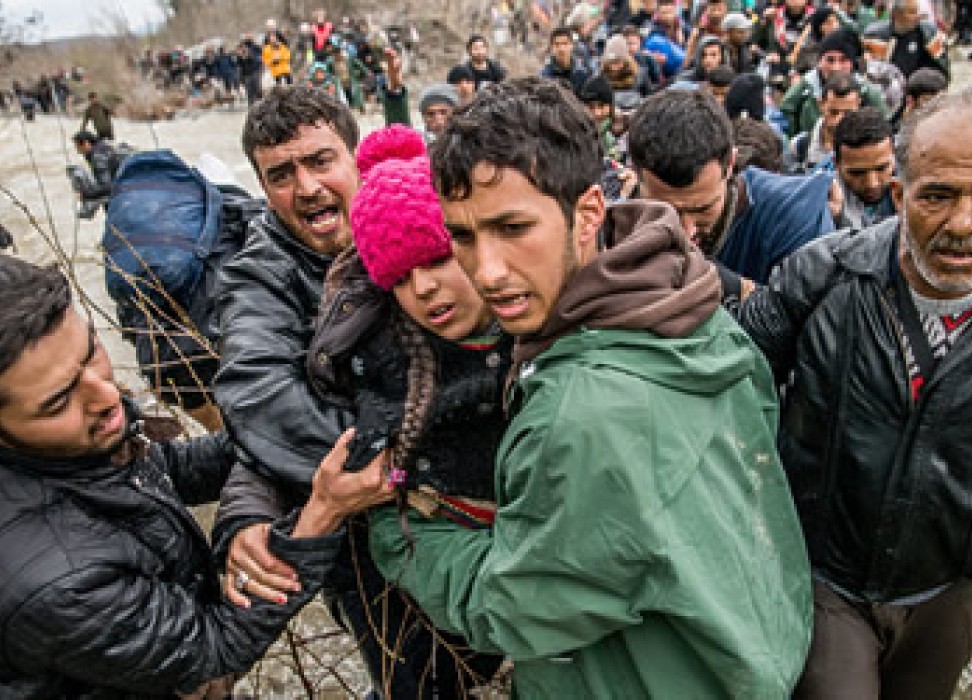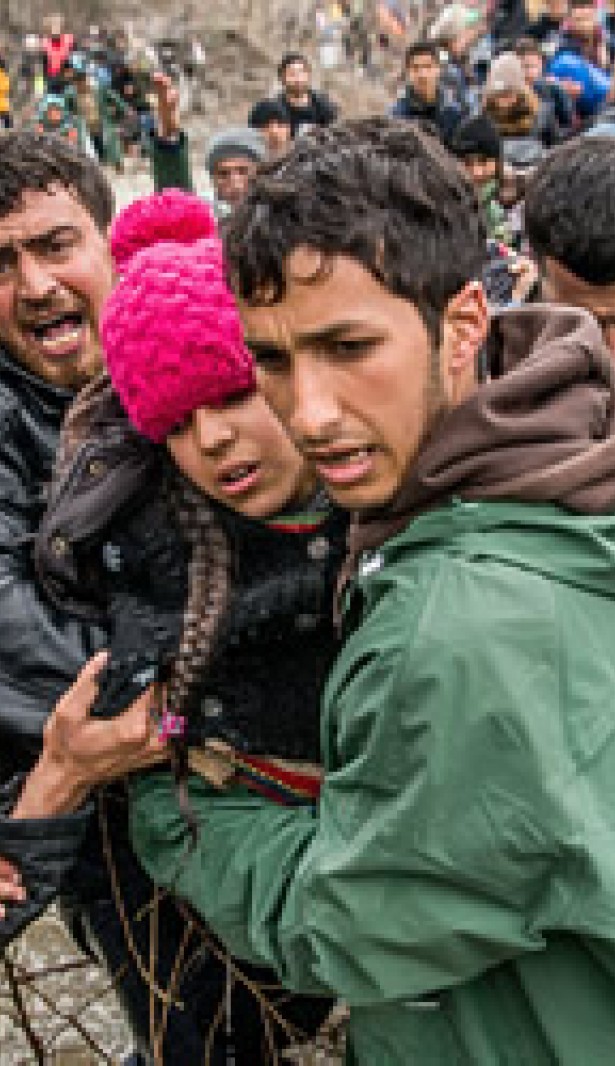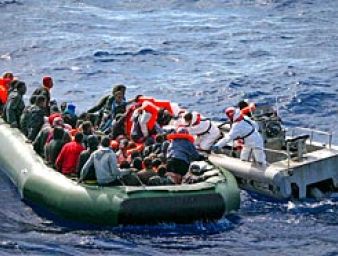Migrants face border closures and exclusion, amid rising hostility
19 April 2017

The two boys, aged 12 and 13, had fled Afghanistan without their families and survived the journey to Europe, travelling by themselves across Iran, Turkey and Bulgaria, before arriving in Serbia. There they tried to cross the border into Hungary, but were turned back by border guards and sent to an asylum centre in Belgrade. For two months they made several more unsuccessful attempts to cross the border, hoping to get to Germany. One day, they left the asylum centre and never returned, joining thousands of migrant children making their way on their own in a foreign land.
It's a common story, says Vlada Sahovic, a researcher with the Belgrade Centre for Human Rights, which offers legal assistance to asylum seekers in Serbia. "The two boys exited the asylum procedures and disappeared," says Sahovic. "With the tightening of borders everywhere, we worry more children will resort to riskier routes that will subject them to danger and abuse."
The Belgrade Centre for Human Rights, in a joint statement with Save the Children, Amnesty International and other non-governmental groups, denounced the increasingly restrictive state policies against migrants that are becoming the norm in many countries. In Hungary, a new law enacted to legalize the detention of migrants in camps along its southern border with Serbia also calls for unaccompanied migrant children between 14 and 18 to be treated as adults, no longer subject to special child protection measures.
"Migrant children, in particular, have specific protection needs and face higher risks of abuse, violence and exploitation along the migration route and in destination countries," they told Member States of the Human Rights Council during a recent interactive dialogue at the Council's 34th session.
The tightening of border controls and increasing restrictions on the movement of migrants are presenting growing risks to migrants of all ages, prompting them to resort to dangerous migration channels in the quest for safety and security and the chance to build new lives. Over the past two years more than 9,000 people have died trying to cross the Mediterranean, according to the International Organization for Migration. Those who survive the perilous sea crossing are finding their journey blocked by border closures and heightened immigration restrictions.
The European Commission recently adopted recommendations for EU member states "to step up returns" of irregular migrants whose asylum applications are rejected. Human rights experts said the new measures aimed at streamlining return procedures were "a slippery slope" to solving Europe's migration challenges. They urged EU Member States to explore alternative measures that would better safeguard the human rights of migrants.
The UN Human Rights Office, in a joint statement with UN agencies and migrant rights defenders, said, "We are concerned that the European Commission plan encourages Member States to undertake 'swift returns' of people with reduced procedural safeguards and through the increased use of detention."
Hungary recently announced the installation of 324 shipping-container units in two detention camps along its southern border with Serbia. Hungary's interior ministry said border police would begin detaining in the camps all migrants trying to enter Hungary, along with those already inside the country, while they await processing of their asylum applications. The new regulation is intended "to prevent migrants with an unclear status from moving freely around the territory of the country and the European Union," the interior ministry said.
UN High Commissioner for Human Rights Zeid Ra'ad Al Hussein, in his annual address to the Human Rights Council, assailed the "chilling indifference" of some political leaders to the fate of migrants.
"I reiterate the importance of abiding to the principle that people must not be sent back to countries where they may face torture, persecution or threats to their life," Zeid told Member States of the Human Rights Council during the their recent gathering for the Council's 34th session.
Xenophobic populism on the rise
At the Council's interactive dialogue on the human rights of migrants, a host of non-governmental organizations defending migrants' rights joined the High Commissioner's call to Member States to support the development of a global compact on migration to protect the human rights of migrants during all stages of the migration route. They urged Member States to strengthen human rights protections for migrants, amid rising xenophobic populism targeting migrants of specific ethnic and religious groups.
"In the context of growing xenophobia in rhetoric and policies, migrants are increasingly the scapegoats of deeper economic social and political transitions within many receiving societies," said Monami Maulik of the Global Coalition of Migrants.
In the United States, an executive order aiming to ban entry of travellers from several Muslim-majority countries follows the new administration's announcement of plans to build a wall along the country's southern border. The tightening of immigration controls includes new measures to detain undocumented immigrants, expedite their returns and ramp up border patrol forces to restrict the influx of people trying to enter the U.S. from Mexico.
"Migrants today are facing a human rights crisis at all stages of the migrant journey – in their places of origin, in transit and at borders, in places of destination and often upon return," said Maulik.
The Human Rights Council considered a recent report from the High Commissioner outlining principles and guidelines developed by the Global Migration Group to uphold the human rights of migrants, including alternative measures to immigration detention and the increase of safeguards for migrants' rights during entry screening procedures. A number of Member States of the Council expressed support for the GMG principles and guidelines, emphasizing the role of the UN Human Rights Office in promoting development of a rights-based global compact on safe, orderly and regular migration.
Join our 'Stand Up' campaign to counter xenophobia and negative perceptions about migrants – share your own story about how you are standing up to defend migrants' rights:
http://www.standup4humanrights.org/en/take-action.html



